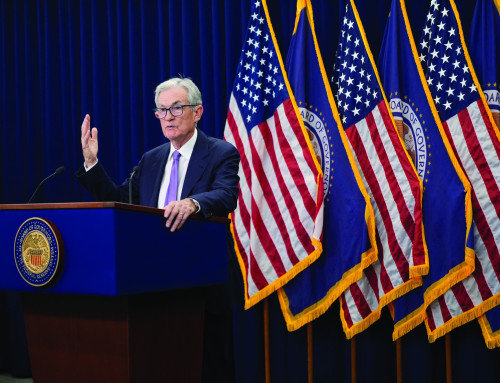SAN FRANCISCO (AP) — Nvidia’s sales of the computing chips powering the artificial intelligence craze surged beyond the lofty bar set by stock market analysts in a performance that may ease recent jitters about a Big Tech boom turning into a bust that topples the world’s most valuable company.
The results announced last week provided a pulse check on the frenzied spending on AI technology that has been fueling both the stock market and much of the overall economy since OpenAI released its ChatGPT three years ago.
Nvidia’s report for its fiscal third quarter covering the August-October period elicited a sigh of relief among those fretting about a worst-case scenario and could help reverse the recent downturn in the stock market.
“The market should belt out a heavy sigh, given the skittishness we have been experiencing,” said Sean O’Hara, president of the investment firm Pacer ETFs.
Nvidia earned $31.9 billion, or $1.30 per share, a 65 percent increase from the same time last year, while revenue climbed 62 percent to $57 billion. Analysts polled by FactSet Research had forecast earnings of $1.26 per share on revenue of $54.9 billion. What’s more, the Santa Clara, Calif., company predicted its revenue for the current quarter covering November-January will come in at about $65 billion, nearly $3 billion above analysts’ projections, in an indication that demand for its AI chips remains feverish.
The incoming orders for Nvidia’s top-of-the-line Blackwell chip are “off the charts,” Nvidia CEO Jensen Huang said in a prepared statement that described the current market conditions as “a virtuous cycle.” In a conference call, Nvidia Chief Financial Officer Collette Kress said that by the end of next year the company will have sold about $500 billion in chips designed for AI factories within a 24-month span. Kress also predicts trillions of dollars more will be spent by the end of the 2020s.
In a conference call preamble that has become sort of a State of the AI Market address, Huang seized the moment to push back against the skeptics who doubt his thesis that technology is at tipping point that will transform the world. “There’s been a lot of talk about an AI bubble. From our vantage point, we see something very different,” Huang insisted while celebrating “depth and breadth” of Nvidia’s growth.
The upbeat results, optimistic commentary and ensuring reaction reflects the pivotal role that Nvidia is playing in the future direction of the economy — a position that Huang has leveraged to forge close ties with President Donald Trump, even as the White House has changed trade policies that have inhibited the company’s ability to sell its chips in China’s fertile market.
Trump is increasingly counting on the tech sector and the development of artificial intelligence to deliver on his economic agenda, economists say. For all of Trump’s claims that his tariffs are generating new investments, much of that foreign capital is going to data centers for AI’s computing demands or the power facilities needed to run those data centers.
“Saying this is the most important stock in the world is an understatement,” Jay Woods, chief market strategist of investment bank Freedom Capital Markets, said of Nvidia.








